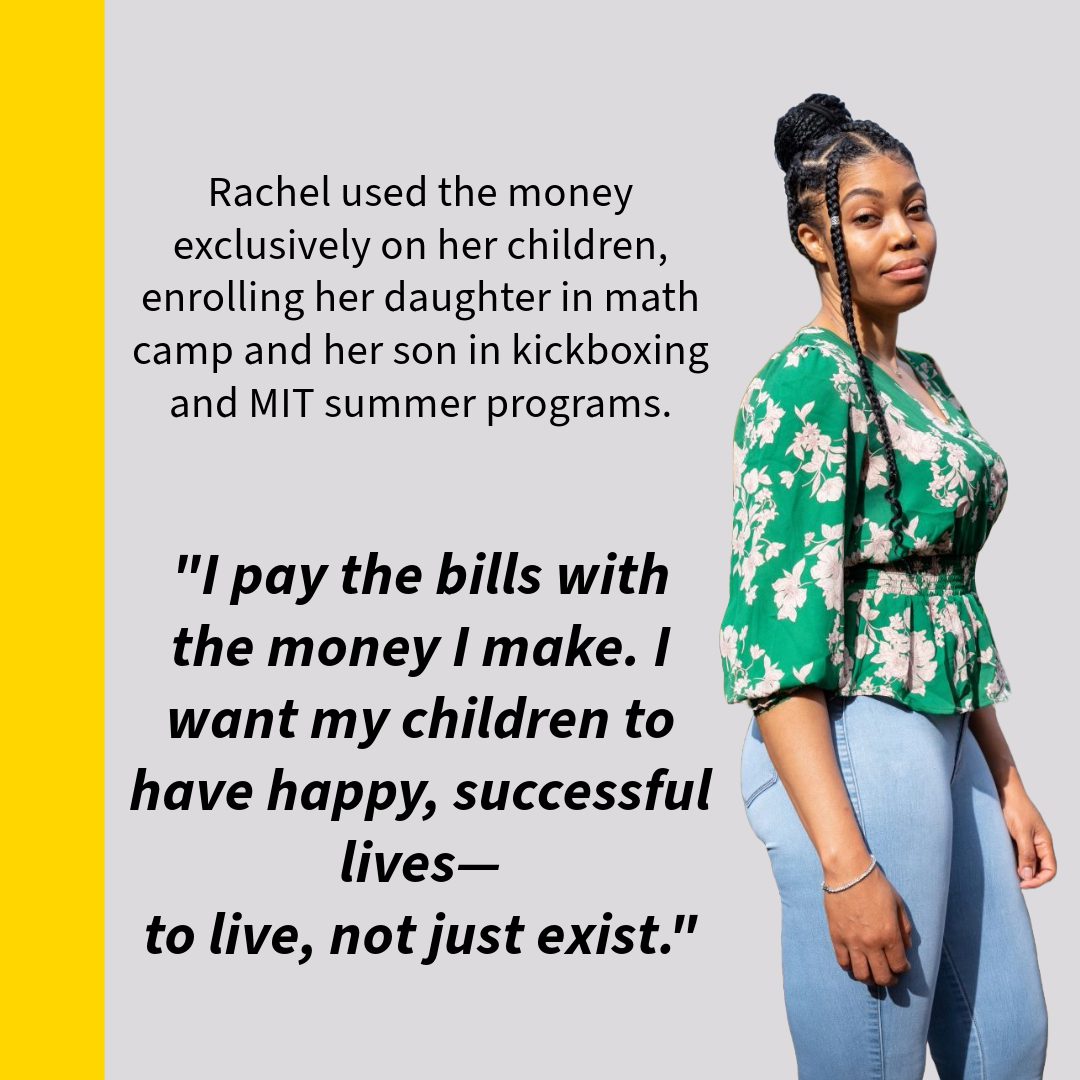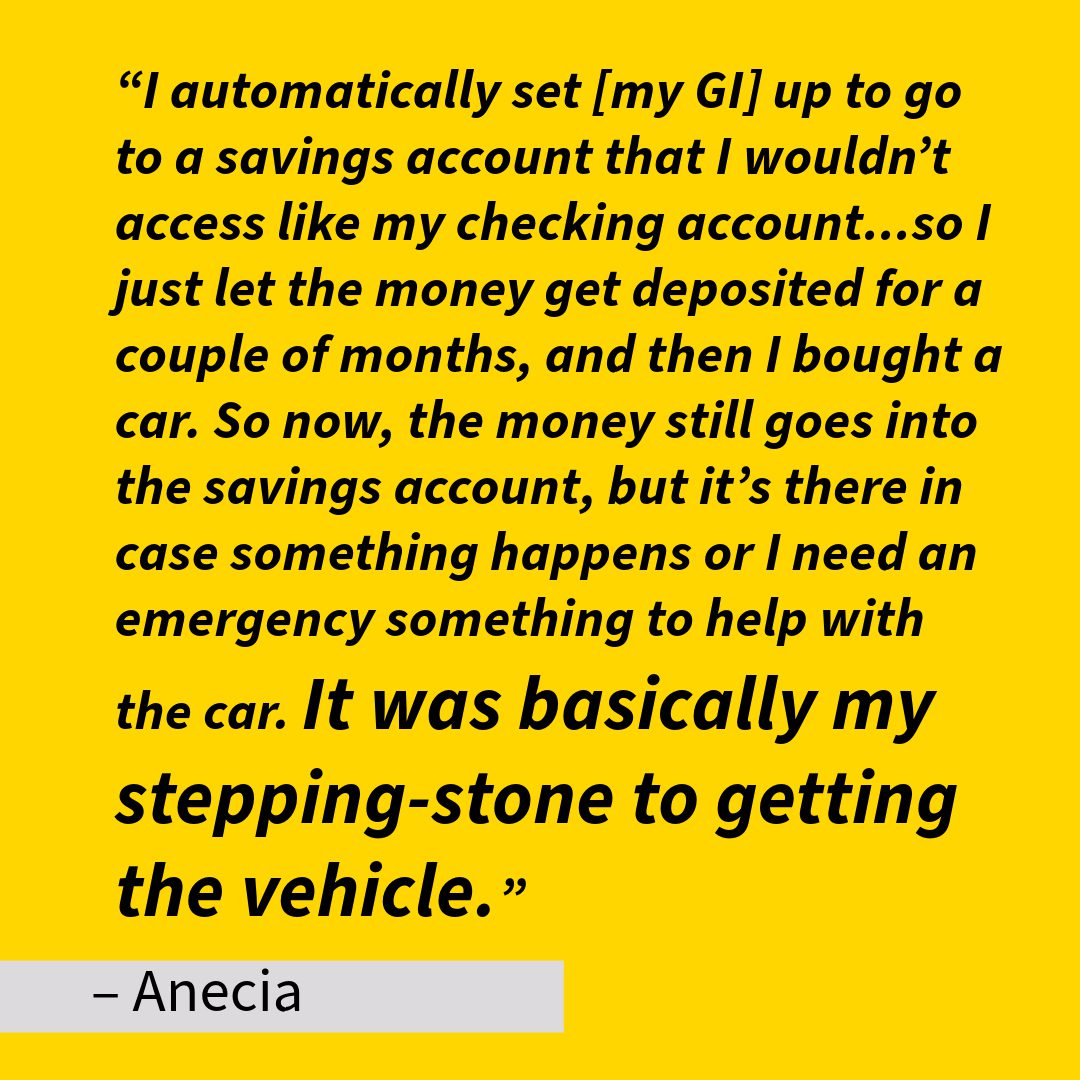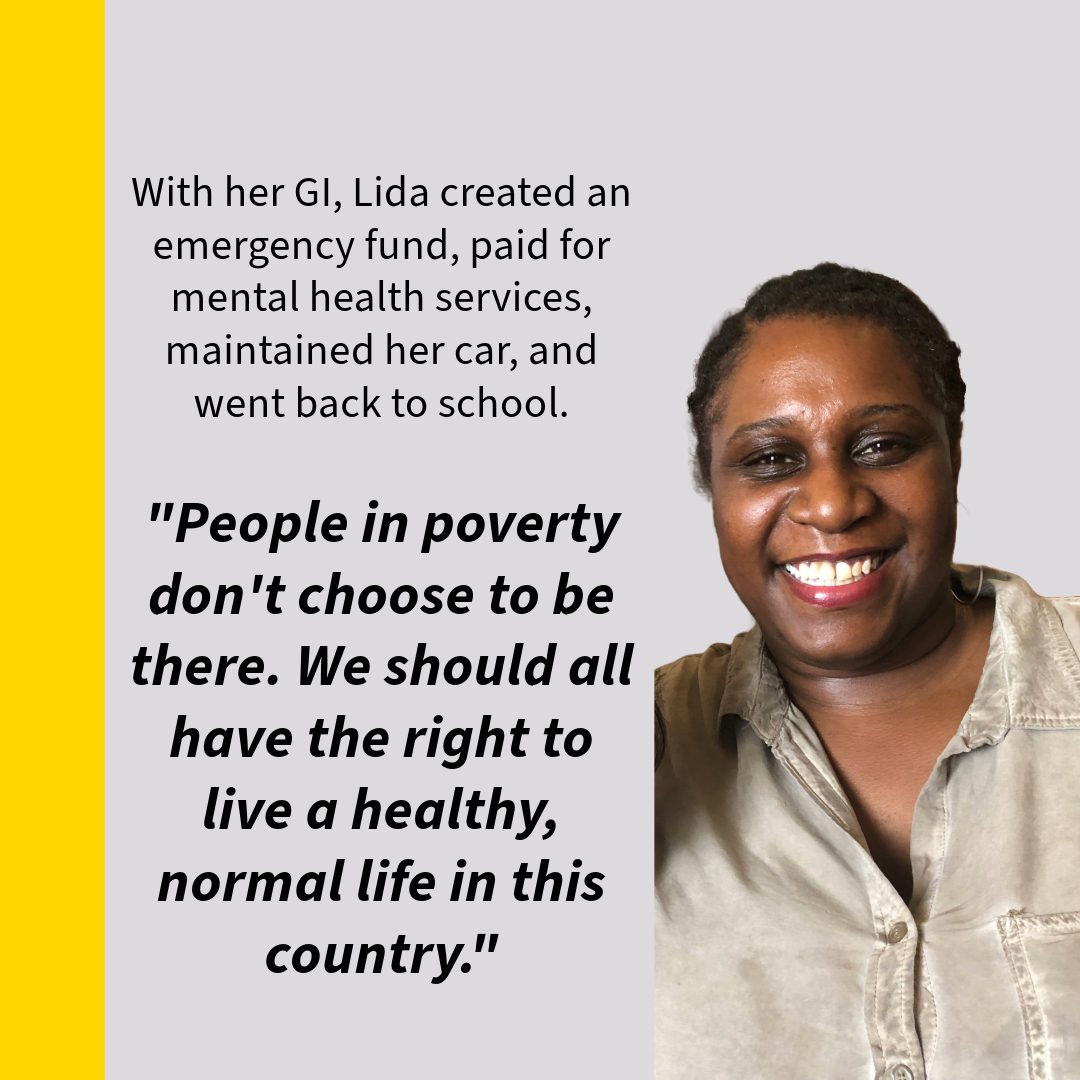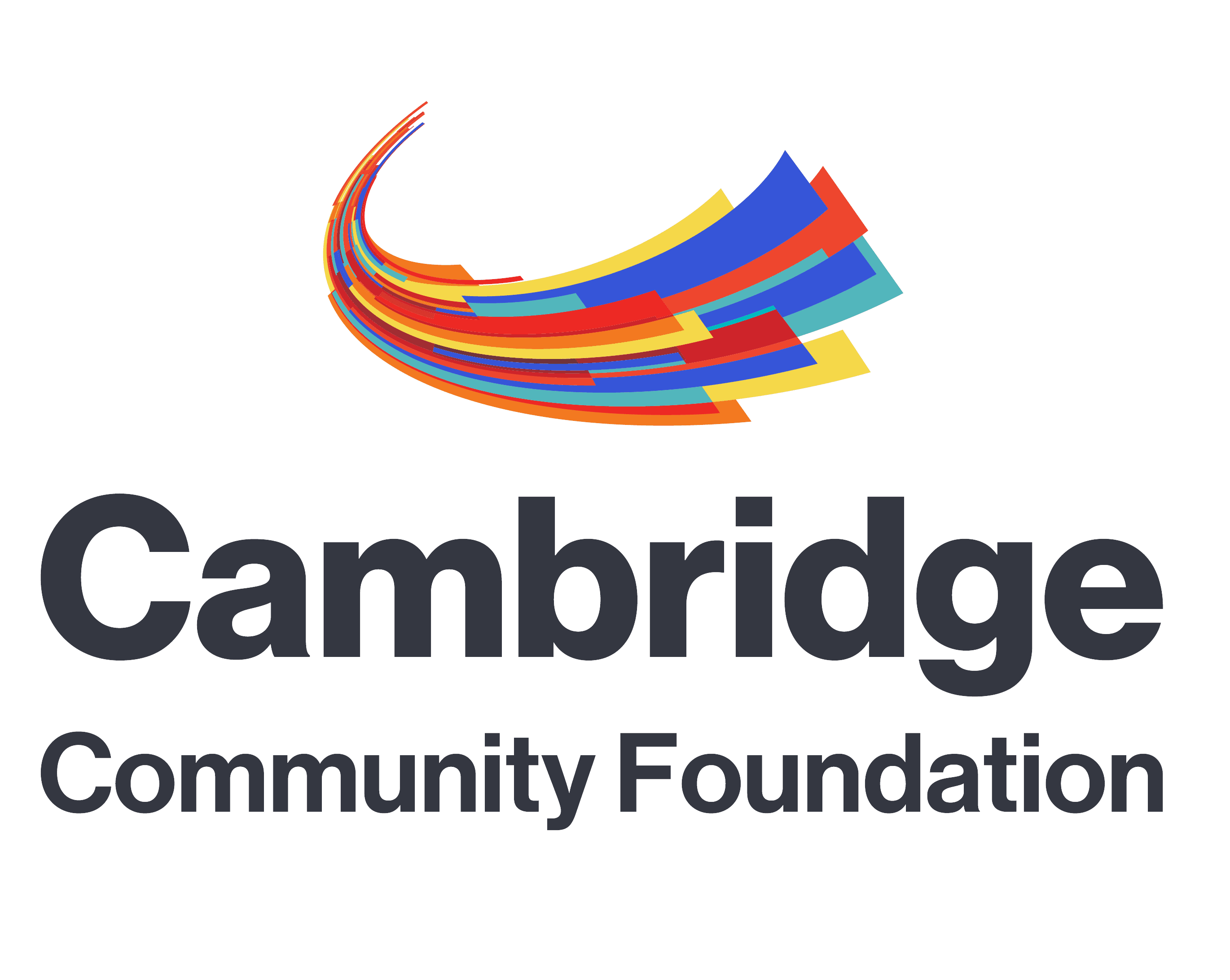Old problems, new solutions. Innovating through philanthropy.
Big problems require new ways of thinking and philanthropy can question, innovate, and pave the way for new solutions to be tested and advanced. Guaranteed income in Cambridge is one example.
In 2021, the Cambridge Community Foundation (CCF) partnered with Mayor Sumbul Siddiqui and Mayors for a Guaranteed Income to launch Cambridge RISE, a $1.6 million philanthropically funded guaranteed income pilot that provided $500/month to 130 single caregiver households with children for 18 months.
The City of Cambridge then took a historic step in 2023 by launching Rise Up Cambridge, a scaled $22-million cash assistance program funded by American Rescue Plan Act (ARPA) funds to provide monthly cash assistance to every qualifying family with children. Cambridge is the first US city to offer a non-lottery cash assistance program of this kind.
Guaranteed income is an important building block for economic mobility, which, along with social cohesion, is a pillar of our new strategic plan.
Newly released research on the Cambridge RISE pilot affirms the power of guaranteed income to improve financial health, support employment, and boost educational outcomes for children: all important building blocks to first- and second-generation economic stability.
Research is an essential tool for philanthropy, providing important evidence to support changes in policy and practice as we seek to find innovative solutions to entrenched issues in our community.
We are grateful for the cross-sector partnership that made RISE and Rise Up Cambridge possible: the City of Cambridge, Mayor’s office, Cambridge’s city manager and city councilors, the Cambridge Economic Opportunity Committee, UpTogether, Just a Start, Mass Law Reform Institute, Cambridge Housing Authority, and Mayors for a Guaranteed Income, Harvard University, MIT, and more than 60 donors who joined us in collective giving.
Findings from Cambridge’s guaranteed income pilot.
Cambridge RISE (RISE) launched in 2021 as part of a series of pilots affiliated with Mayors for a Guaranteed Income, which commissioned randomized controlled trial studies of the pilots through the Center for Guaranteed Income Research (CGIR) at Penn’s School of Social Policy & Practice (SP2).
Cambridge residents ages 18 and older were eligible to participate in RISE if they had incomes below 80% of the Area Median Income and were single caregivers with at least one child under the age of 18. Researchers randomly selected 130 participants to receive $500 monthly cash payments for 18 months, and they measured participant impact against a randomized control group of 156 similar residents who did not receive payments. The pilot ran from September 2021 to February 2023.
Released in March 2024, results from the study found that despite the pandemic-related stressors and inflation, as well as the associated increased cost of living, participants benefited from guaranteed income in several ways:
-
Higher employment
- Recipients increased their employment rate from 36% at baseline to 40% after 12 months, while employment fell amongst the control group from 30% at baseline to 28% one year later. Recipients also had higher rates of part-time and seasonal employment.
-
Improved financial health
- On average, recipients of the guaranteed income reported higher incomes and lower income volatility and were better able to cover a $400 emergency expense compared to the control group who did not receive cash assistance.
-
Enhanced housing, utility, and food security
- By the end of RISE, the treatment group experienced a lower housing cost burden, more stable utility costs, and higher food security compared to the control group.
-
Increased time and space for parenting
- Guaranteed income allowed recipients to give more attention and support to their children, who in turn experienced improved educational outcomes compared to similar families without the direct cash.
Above: Cambridge RISE recipients speak personally to the impact and power of a monthly guaranteed income. Testimonials collected by CEOC, CCF, and CGIR.
Rise Up Cambridge research: Interim findings, November 2024
From June 2023 through February 2025, the City of Cambridge’s Rise Up Cambridge (Rise Up) cash assistance program has provided $500/month to nearly 2,000 families in Cambridge making at or below 250% of the Federal Poverty Level with a child 21 or under. Two-thirds of the households (1,286) opted to participate in our research study, led by MDRC.
The research to date has consisted of an analysis of enrollment data and a first round of in-depth interviews with study participants. Interim findings from these initial research activities include:
- Participants have used the Rise Up funds to meet basic needs, pay down debt, build savings, and occasionally do something special for their families.
- Rise Up contributed to quality-of-life improvements, such as moving out of a shelter into better-quality housing.
- Rise Up funds helped to alleviate some effects of financial shocks.
- Citywide program was implemented efficiently. Participants described the application and disbursement processes as simple.
One piece of demographic data that stood out to our team: the median income of study participants was $23,650, with 43% of study households having an annual income under $20,000 at the time of enrollment. As a comparison, Cambridge Community Foundation’s recent data brief, Cash Empowers, found the median income for all families with children in Cambridge is nearly $160,000. The disparity between these two median incomes is stark and emphasizes the high cost of living and intense income disparities in our city.
The MDRC research study continues with surveys, focus groups, storytelling sessions, and additional in-depth interviews. See below for more information about the study.
Read all interim findings by MDRC, including a demographic summary of study participants. The next interim findings are expected in Spring 2025, and a final report is expected at the end of 2025.

Background on the research project
The City of Cambridge and the Cambridge Community Foundation have commissioned a study of Rise Up. Led by MDRC, the research project is managed by the Cambridge Community Foundation and funded through a combination of public and philanthropic dollars.
Through this research on Rise Up, we have a unique opportunity to contribute to the growing body of knowledge about the efficacy of GBI programs and to translate learning from this program into changes in policy and practice to support economic mobility for low-income households. While standard evaluations ask a yes or no question, “Does this program work?”, nuance is needed to leverage learnings into effective policy change. We need to know how greater agency through unrestricted cash affects family decisions.
The research will focus on outcomes in four categories: financial security, economic mobility, wellbeing, and self-efficacy and sense of agency. Research will employ qualitative and quantitative methods, utilizing tools like application data, surveys, interviews, and focus groups, and center on equity – particularly racial equity. It will be structured to facilitate comparisons to GBI programs across the country. Research began in Spring 2024 with a final report available at the end of 2025. For more information about the research design, please contact Rise Up Research Project Director Allison Barron.
Community members and Rise Up participants play formal and central roles in the study. We recognize that Cambridge residents know firsthand about raising a family in our city, and their voices can ensure the study reveals truths about the challenges they face and the successes they achieve. First, Cambridge community members and Rise Up participants are serving on a Research Advisory Council (RAC). The RAC provides input into what kinds of information is collected and how and will be a part of making sense of the information once it is collected. Members are compensated for their time and expertise. Additionally, three Community Researchers joined the MDRC research team and are involved in all aspects of the study. These important partners give power to community voice and help ensure that the research leaves our community stronger than before.
More about Rise Up Cambridge
While the Cambridge RISE pilot was funded entirely with philanthropic dollars, Rise Up, is funded with the American Rescue Plan Act funds. This program was launched in partnership with Cambridge Economic Opportunity Committee (CEOC), the Cambridge Community Foundation, and the former Office of the Mayor, Sumbul Siddiqui. For more information on Rise Up Cambridge, go here: https://www.cambridgema.gov/riseup
Join us
Help ensure our city is a place where all can thrive. Our Guaranteed Basic Income Fund supports community engagement and robust research around the impact of Rise Up Cambridge, the City’s cash assistance program that’s the first in the nation available to everyone who qualifies. Donate here.
Contact
For more information about Rise Up Cambridge, go to: https://www.cambridgema.gov/riseup
If you have questions about the research please contact Allison Kroner Barron, Rise Up Research Project Manager at Cambridge Community Foundation at [email protected]. Sign-up to follow CCF’s news and research updates here.
If you are a Rise Up Cambridge recipient looking for additional support, CEOC is working with families to connect them to resources ranging from housing to food pantries and more. If you would like to find out more information, please contact them here.
If you are a Rise Up Cambridge recipient with a question about your payments, please contact the Rise Up Support team at 617-812-5124 or [email protected].





